Slow-Roasted Salmon with French Herb Salsa
This post may contain affiliate links. Read my full disclosure policy.
Hosting made easy and elegant: let this slow-roasted salmon be the stress-free star of your brunch or buffet.
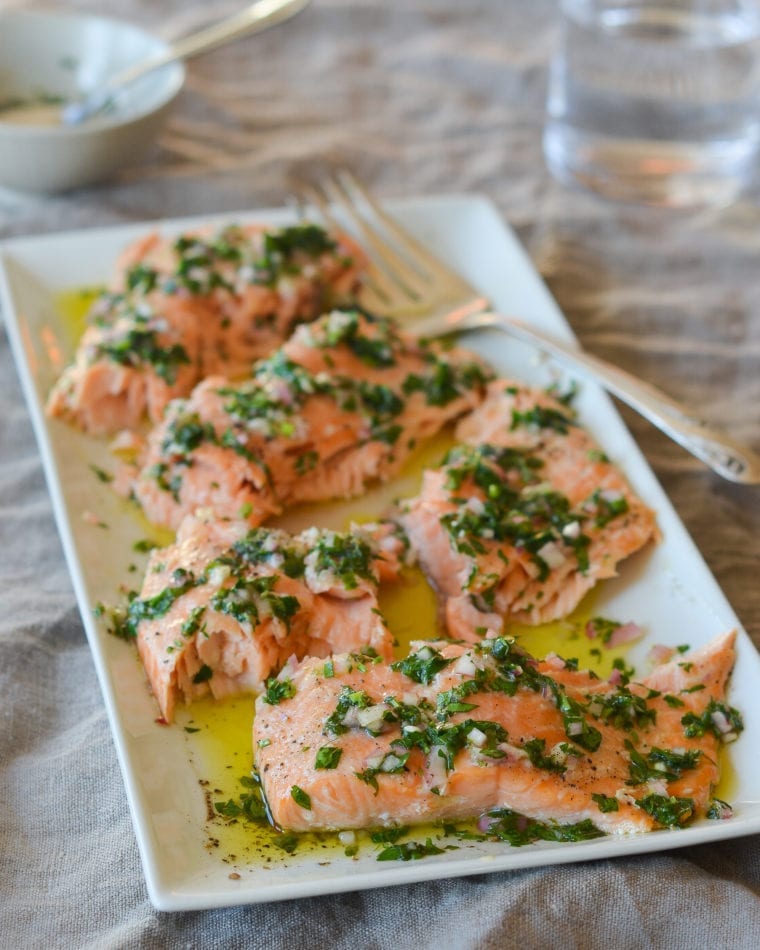
This slow-roasted salmon recipe, a gem from Samin Nosrat’s acclaimed Salt, Fat, Acid, Heat, has become a favorite in my kitchen. Samin’s method of slow-roasting the salmon is genius—the low heat makes it almost impossible to overcook the fish. In fact, the fish stays tender and slightly translucent, even when fully cooked. As with many of her recipes, Samin provides a general technique for cooking the salmon, along with variations and sauces. I like to pair the salmon with a vibrant French herb salsa, a simple mix of macerated shallots, olive oil, and fine herbs that you can whip up in no time.
Whether served hot, cold, or at room temperature (my favorite), this salmon is always a showstopper, especially at holiday buffets. Plus, the ability to make it ahead of time is a lifesaver for stress-free hosting.
Table of Contents
What you’ll need To Make Slow-Roasted Salmon
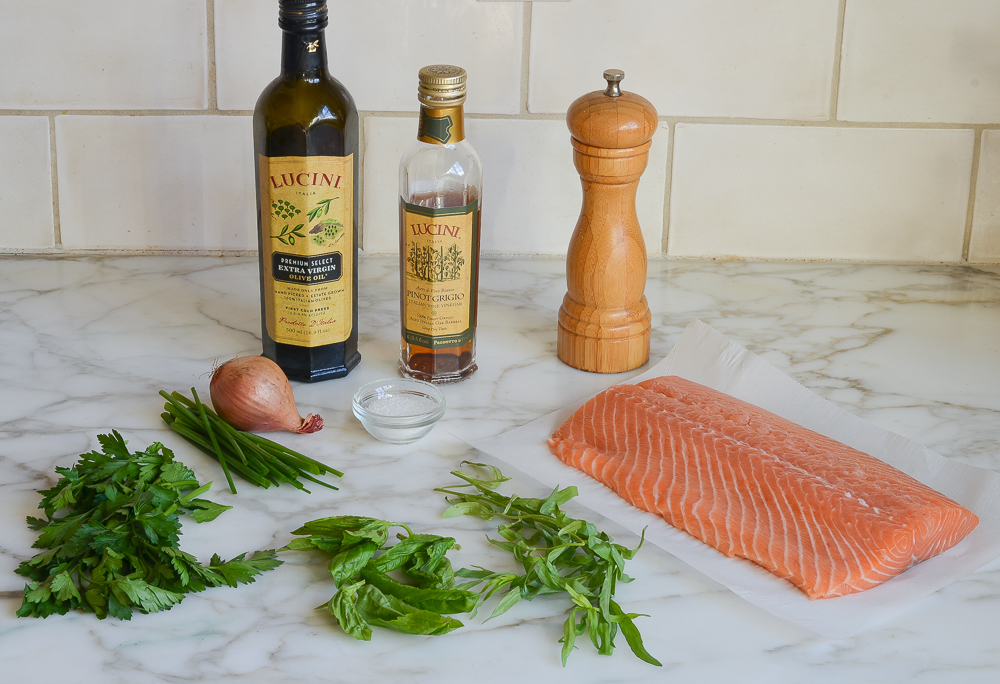
Step-by-Step Instructions
To begin, place the salmon on a baking sheet. Drizzle with the olive oil and sprinkle the salt evenly over top.
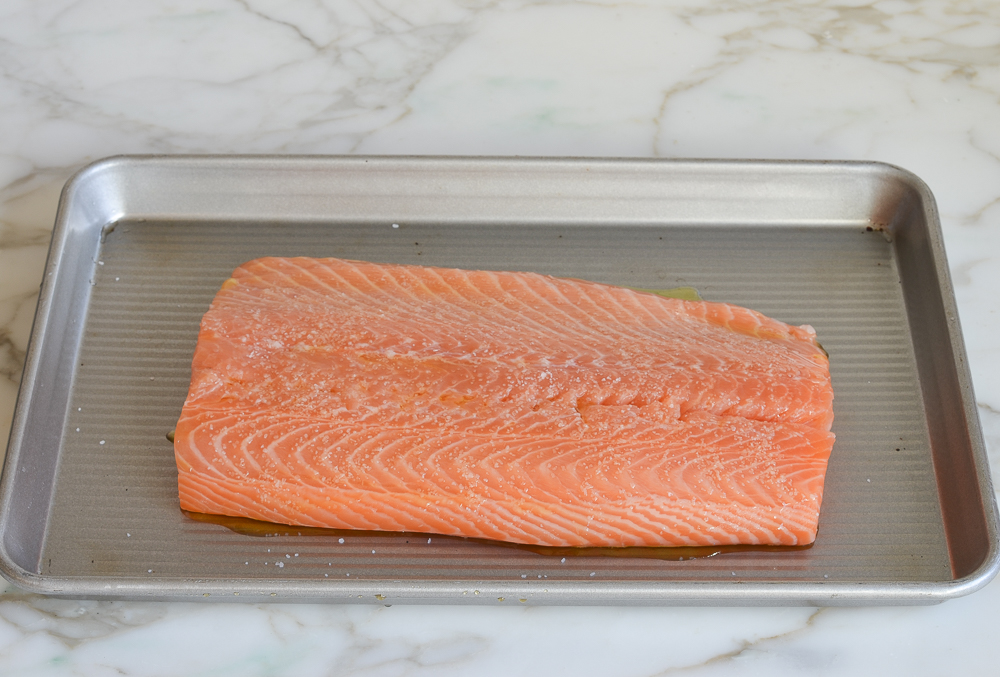
Slide the pan into the oven, which has been preheated to 225°F, and roast for 40 to 50 minutes, until the fish begins to flake in the thickest part of the filet when poked with a knife or your finger. (Because this method is so gentle on its proteins, the fish will appear translucent even when it’s cooked.) Don’t worry if any white coagulated proteins form on the fish; just scrape them off with a spoon.
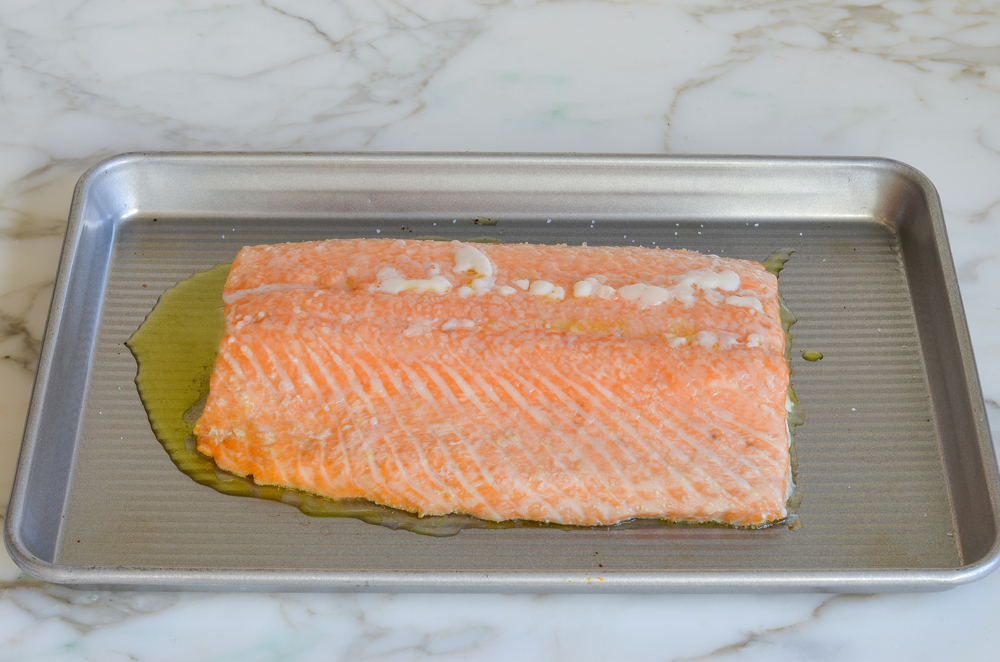
Meanwhile, in a small bowl, combine the shallot and vinegar and let sit for 15 minutes to macerate.
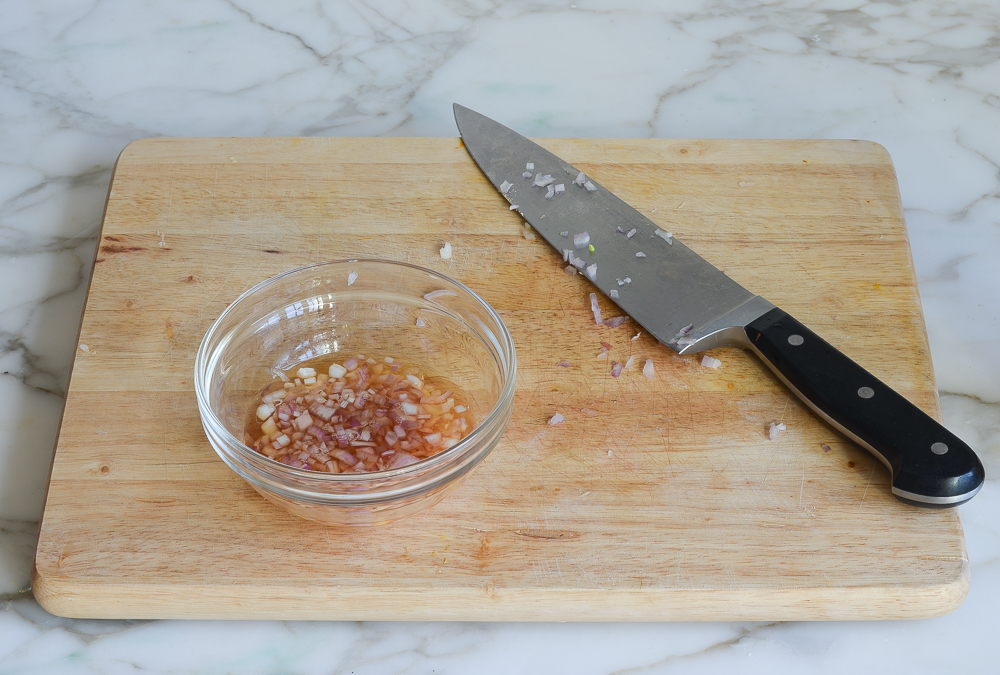
In a separate small bowl, combine the herbs, olive oil, salt, and a few grinds of black pepper.
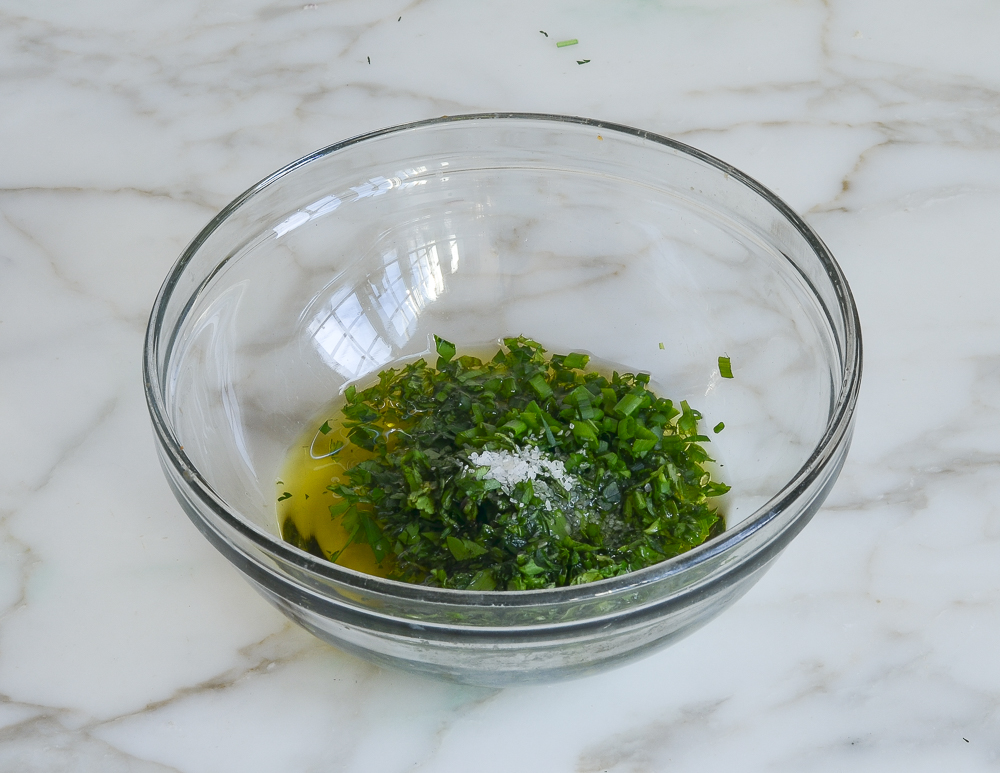
Just before serving, use a slotted spoon to add the shallot (but not the vinegar, yet) to the herb oil.
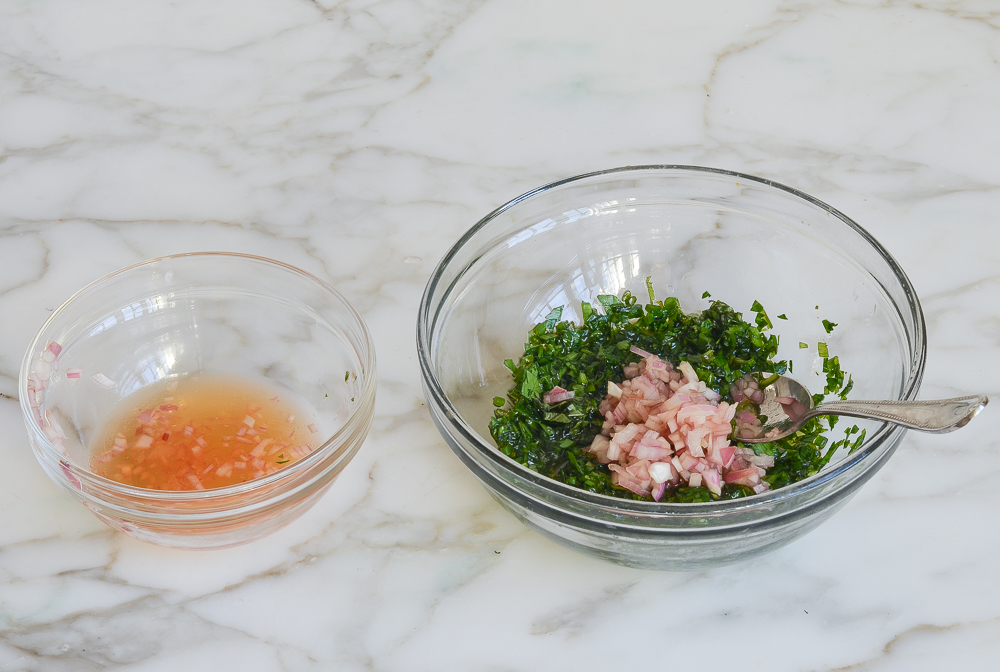
Stir, taste, and add the vinegar as needed (I usually add 2 to 3 teaspoons). Taste and adjust salt, if necessary.
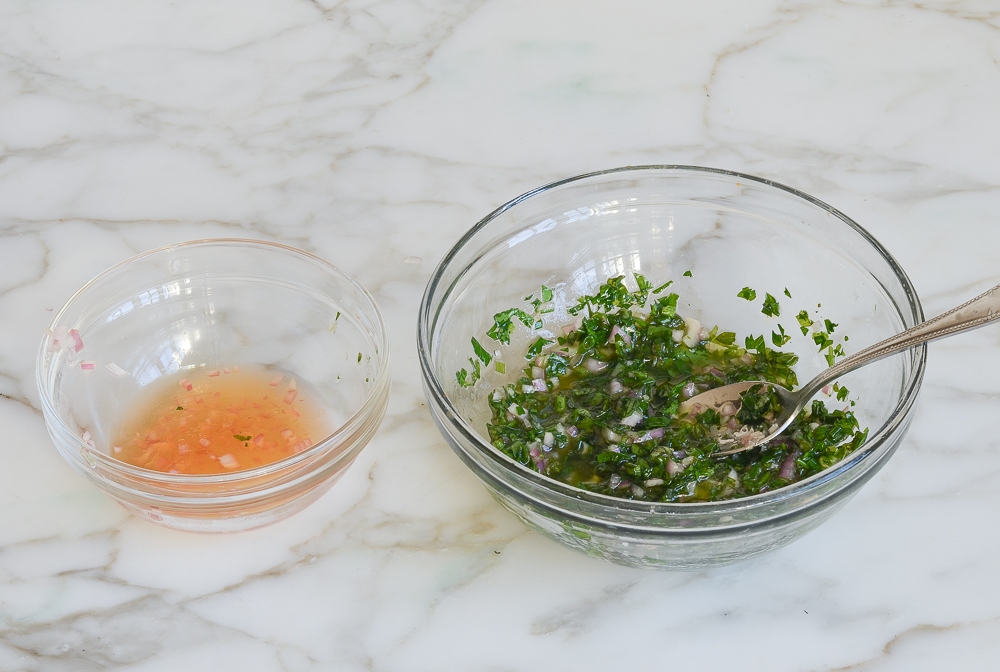
Break the salmon into large, rustic pieces and spoon the French herb salsa over top.
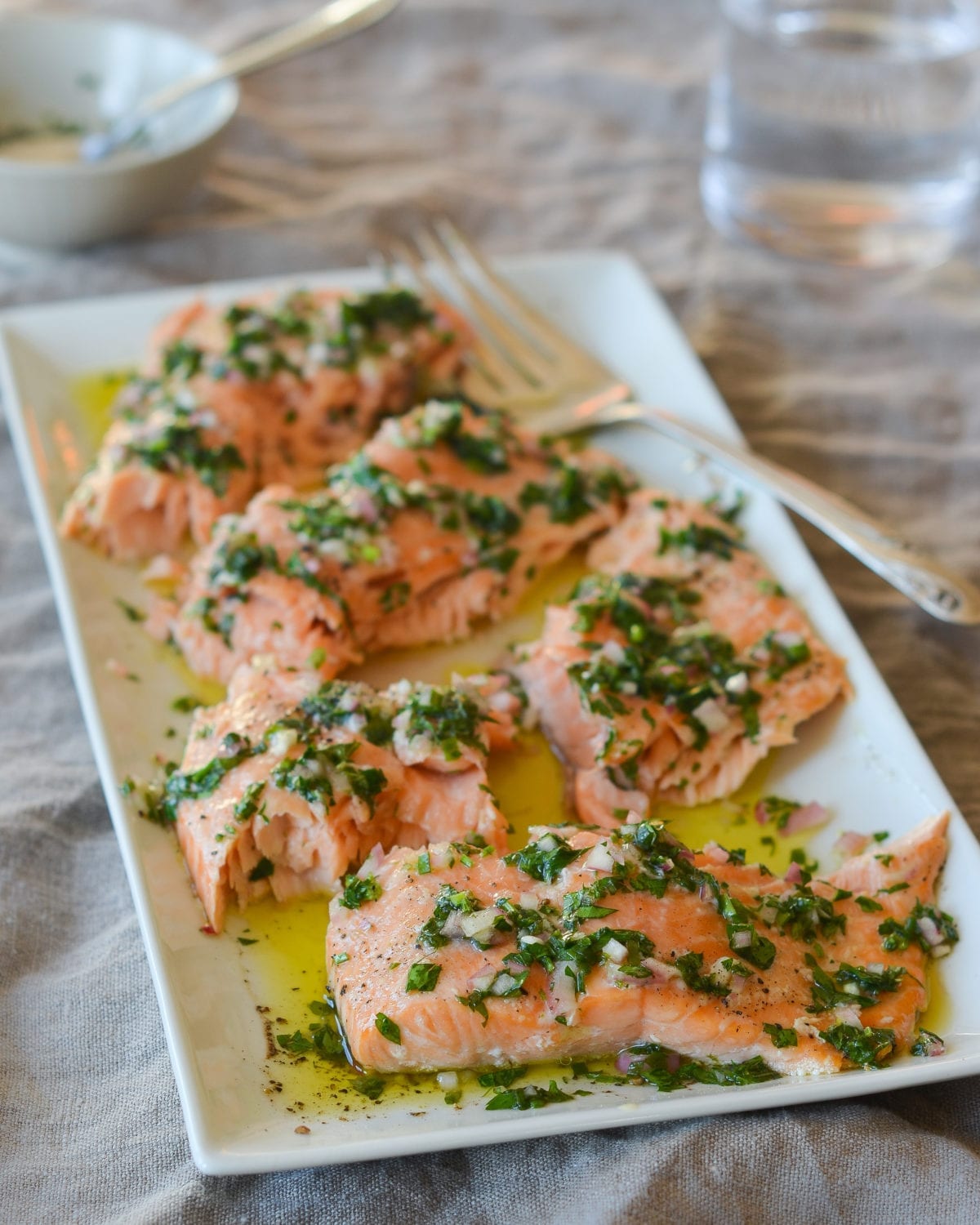
You may also like
Slow-Roasted Salmon with French Herb Salsa
Hosting made easy and elegant: let this slow-roasted salmon be the stress-free star of your brunch or buffet.
Ingredients
For the Salmon
- One (2-lb) salmon filet, pin bones and skin removed
- 1 tablespoon extra-virgin olive oil
- ¾ teaspoon kosher salt
For the French Herb Salsa
- 3 tablespoons finely diced shallot, from 1 medium shallot
- 3 tablespoons white wine vinegar
- 2 tablespoons very finely chopped fresh Italian parsley
- 1 tablespoon very finely chopped fresh chervil (okay to substitute more parsley if you can't find it)
- 1 tablespoon very finely chopped fresh chives
- 1 tablespoon very finely chopped fresh basil
- 1 teaspoon very finely chopped fresh tarragon
- 5 tablespoons extra-virgin olive oil
- ¼ teaspoon kosher salt
- Freshly ground black pepper
Instructions
For the Salmon
- Preheat the oven to 225°F and set an oven rack in the middle position.
- Place the salmon on a baking sheet. Drizzle with the olive oil and sprinkle the salt evenly over top. Slide the pan into the oven and roast for 40 to 50 minutes, until the fish begins to flake in the thickest part of the filet when poked with a knife or your finger. (Because this method is so gentle on its proteins, the fish will appear translucent even when it's cooked.) Using a small spoon, scrape off any white coagulated proteins that may have formed on the salmon.
- Break the salmon into large, rustic pieces and spoon the French herb salsa (below) over top. This dish can be served hot, cold, or room temperature.
For the French Herb Salsa
- In a small bowl, combine the shallot and vinegar and let sit for 15 minutes to macerate.
- In a separate small bowl, combine the herbs, olive oil, salt, and a few grinds of black pepper.
- Just before serving, use a slotted spoon to add the shallot (but not the vinegar, yet) to the herb oil. Stir, taste, and add the vinegar as needed (I usually add 2 to 3 teaspoons). Taste and adjust salt, if necessary.
- Make-Ahead Instructions: The salmon can be cooked 1 day ahead of time, covered with plastic wrap, and refrigerated. The French herb salsa can be made, covered, and refrigerated up to 2 days ahead of time.
Nutrition Information
Powered by ![]()
- Per serving (6 servings)
- Calories: 439
- Fat: 34 g
- Saturated fat: 6 g
- Carbohydrates: 1 g
- Sugar: 0 g
- Fiber: 0 g
- Protein: 31 g
- Sodium: 405 mg
- Cholesterol: 83 mg
This website is written and produced for informational purposes only. I am not a certified nutritionist and the nutritional data on this site has not been evaluated or approved by a nutritionist or the Food and Drug Administration. Nutritional information is offered as a courtesy and should not be construed as a guarantee. The data is calculated through an online nutritional calculator, Edamam.com. Although I do my best to provide accurate nutritional information, these figures should be considered estimates only. Varying factors such as product types or brands purchased, natural fluctuations in fresh produce, and the way ingredients are processed change the effective nutritional information in any given recipe. Furthermore, different online calculators provide different results depending on their own nutrition fact sources and algorithms. To obtain the most accurate nutritional information in a given recipe, you should calculate the nutritional information with the actual ingredients used in your recipe, using your preferred nutrition calculator.
Gluten-Free Adaptable Note
To the best of my knowledge, all of the ingredients used in this recipe are gluten-free or widely available in gluten-free versions. There is hidden gluten in many foods; if you're following a gluten-free diet or cooking for someone with gluten allergies, always read the labels of your ingredients to verify that they are gluten-free.

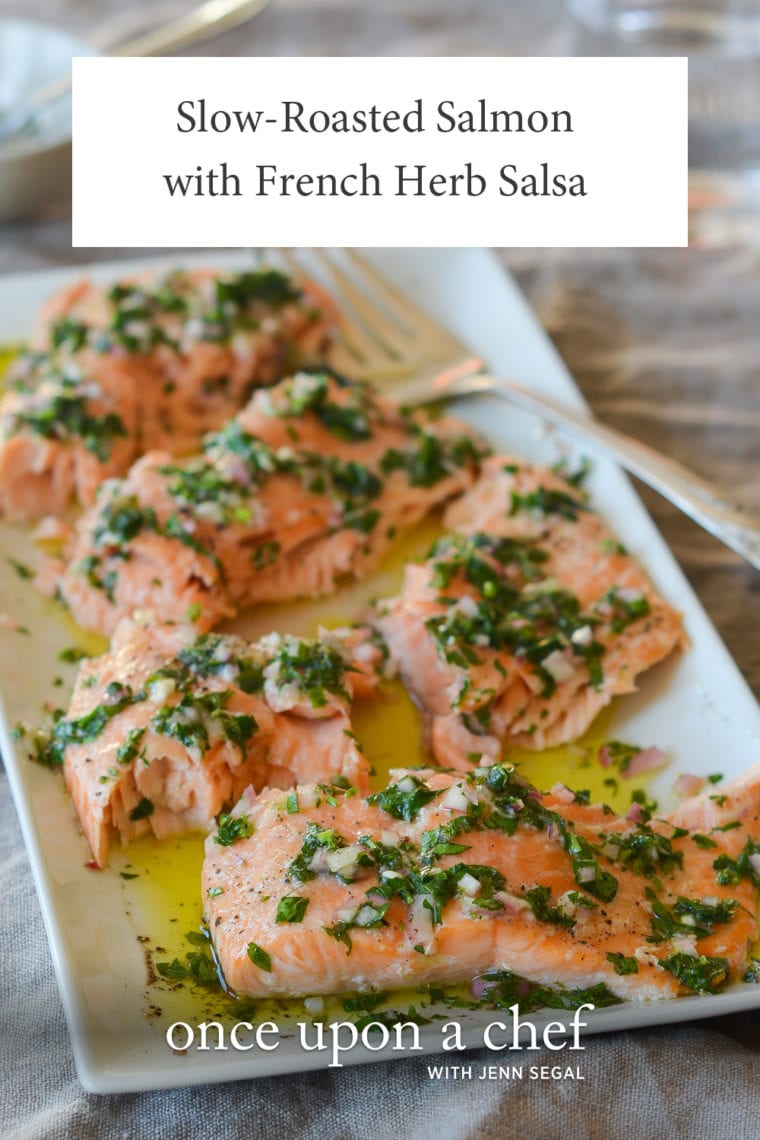
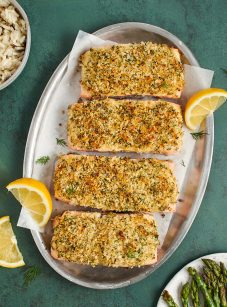
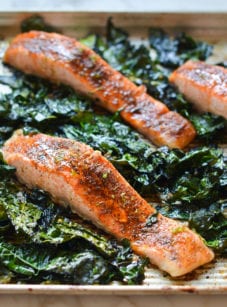
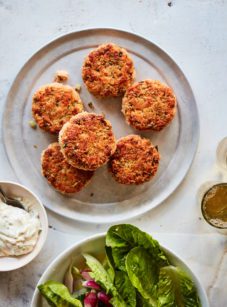
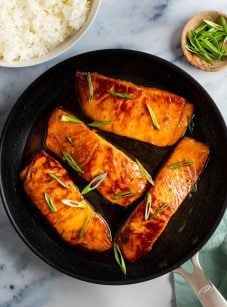
Hi Jenn! We love your books and recipes and have been using them for years. We’re planning a shabbat dinner in a couple of weeks and want to make a pretty elaborate meal, with this salmon as one of the main dishes. We want to do a much prep in advance since we’ll have a lot of items to keep track of. We want to serve this salmon warm. What’s the best way to do any prep work in advance and serve it warm?
Hi Clayton, Thanks for your nice words about the recipes — so glad you like them! For the salmon, I think I’d undercooked it ever so slightly initially and then reheat it gently before serving.
This is my go to recipe for my family. They love it. In the past, I have served it in the spring and in the summer .
I am planning a fall birthday ladies luncheon for my BFF. What would you suggest as sides?
So glad it’s a hit with your family! It would pair nicely with crusty bread and carrot salad.
I have a Miele steam oven. Would this recipe work (and be just as good) in the steam oven?
Hi Evie, I’m not familiar with a steam oven so I can’t say for sure – I’m sorry I can’t be more helpful!
I hope you can give me a suggestion. I would love to make this for an up coming dinner party, baked on fig leaves. One of my guests does not eat shallots or onions is there another salsa you would suggest. also what temperature does the salmon need to cook to. Thanks so much
Hi Lynn, you can just omit the shallots. I might suggest serving a bowl of chives on the side and allowing guests to sprinkle them on top of their portions. And regarding the temperature, I’d aim for about 125°F at the thickest part. (Typically, I’d suggest cooking closer to 145°F, but for this, you’re aiming for it to be just barely cooked through.) Hope everyone enjoys!